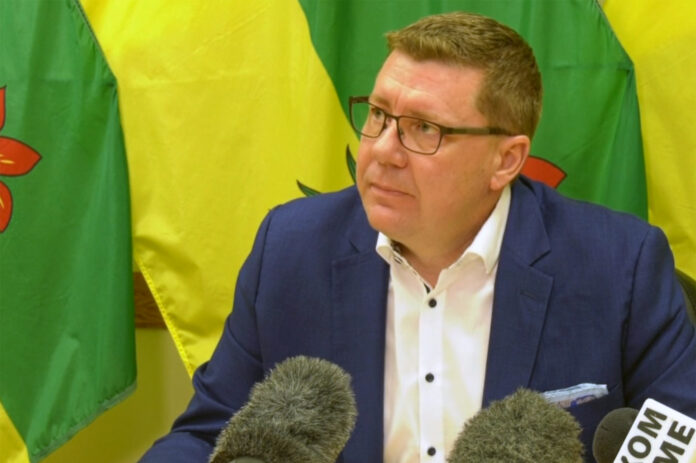The Saskatchewan Public Safety Agency’s (SPSA) emergency operations centre will take over the provincial response to COVID-19, the province announced on Thursday.
Saskatchewan Health and the Saskatchewan Health Authority will both be part of the top three positions in the centre. Premier Scott Moe said the move is about coordinating logistics and putting resources where they are needed.
“This is a model that has worked extremely well in other situations,” Moe said in a news conference. “While COVID is obviously a different kind of emergency for all of us, this is a structure that has worked very well in other emergencies in Saskatchewan and we are confident that it will work well in supporting our response.”
The SPSA has been providing support and setting up responses in areas like La Loche since the beginning of the pandemic, but will now take on a slightly different role. One of its first jobs will be to look at how to increase the number of ICU beds from the 130 available now to about 175.
The province has already added 50 new ICU beds to the normal amount by shifting staff around. A service slowdown across the SHA could allow the addition of another 45.
“That second expansion is proving to be very challenging across the health care system,” Moe said. “It is one of the first things the provincial command is going to have a look at—is there the capacity to increase the ICU beyond the 130 we are currently at?”
NDP Leader Ryan Meili issued a statement saying the government should have done more and should have done it sooner.
“Shifting responsibility for COVID-19 from one bureaucracy to another won’t do anything to add nurses and doctors to our overstretched ICUs,” said Meili.
“Scott Moe needed to ask for federal supports weeks ago and should have implemented evidence-based public health measures to protect Saskatchewan families this weekend. He should have announced this today,” Meili added.
The province will not create gathering restrictions in advance of the Thanksgiving long weekend. Moe said that would be punishing the 80 per cent who have been vaccinated for the refusal of the 20 per cent who are choosing to remain unvaccinated.
“We’re not going to be implementing broad based restrictions on 80 some percent of population that has gone out and gotten their first shot,” he told reporters.
The emergency operations centre (EOC) will be led by a joint management team that includes Marlo Pritchard, President of the SPSA, Scott Livingstone, Chief Executive Officer of the Saskatchewan Health Authority and Max Hendricks, Deputy Minister of Health.
Doctor Saqib Shahab, Chief Medical Health Officer, will remain responsible for public health recommendations and public health orders.
Pritchard said that the change is not a takeover of the response but is designed to pull key individuals from the SHA and Ministry of Health to better manage the information flow and resource allocation and makes for better role clarity.
“Today the SPSA is enhancing the provincial operations centre from its current role of bringing together provincial ministries, Crowns and other organizations to now being a unified command with Saskatchewan Health and the Saskatchewan Health Authority,” Pritchard said. “The leadership from the SHA and the Ministry of Health are all intimately involved in the provincial Emergency Operations Centre.”
Using the Incident Command structure allows them to better gather information, analyze it and respond, he explained.
The Premier said that no option is off the table, including accessing help from the federal government or the Red Cross, but people should realize that may not be enough either. In Alberta, accessing help through the Canadian Armed Forces added the equivalent of eight ICU beds last week and would proportionally add two in Saskatchewan.
Moe said the province should look deeper into its own resources first to see what can be done.
Saskatchewan has received 500,000 rapid tests recently and that same amount is expected to arrive again soon as the province aims to make them available for use in homes.
The province has a standing order of one million tests per month to be made available to schools and businesses and the public. One issue is that the tests come in bundles of five or 10.
“This is something that the joint command centre will be looking at very shortly. Should the province go outside the federal government and look at procuring additional rapid tests?” asked Moe. “We will do so if we think its necessary.”
He said the rapid tests are a first line of defense and offence against the virus.
susan.mcneil@paherald.sk.ca


